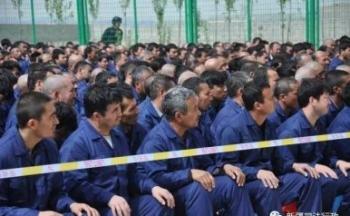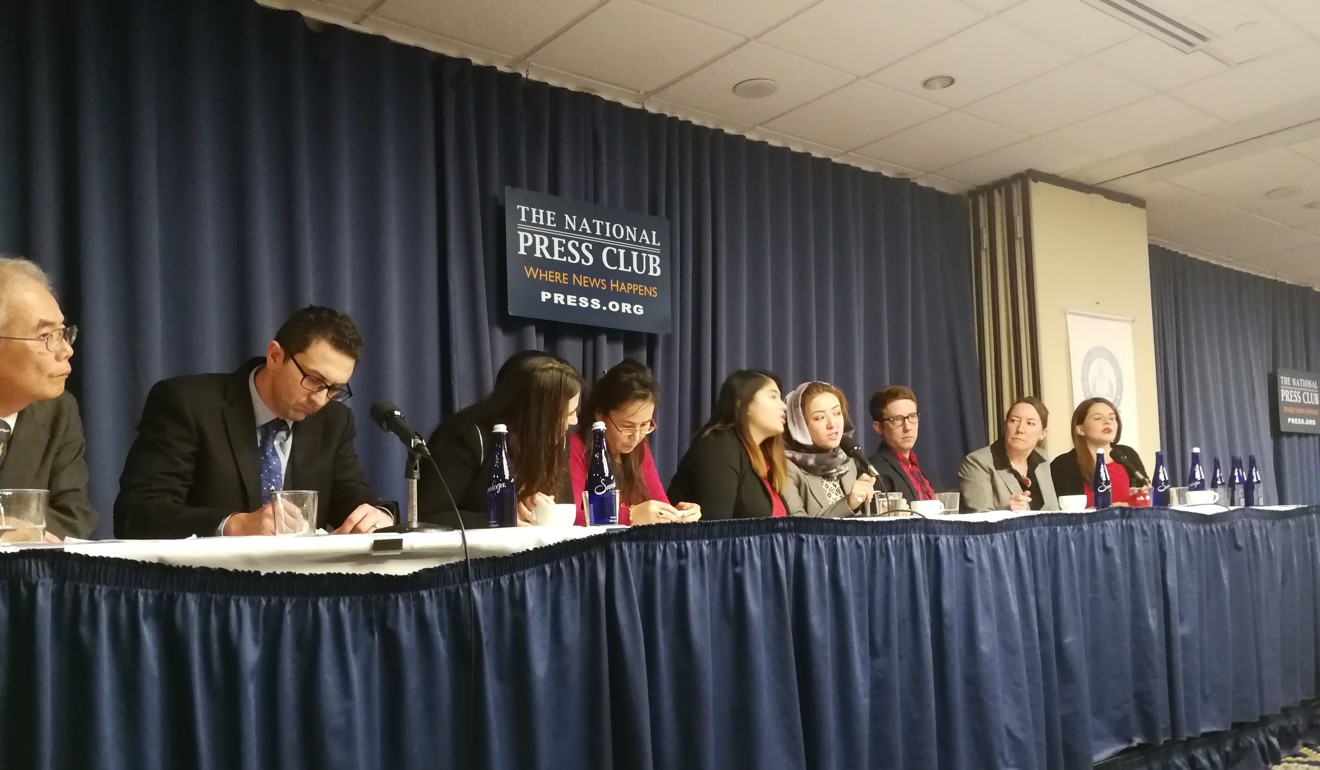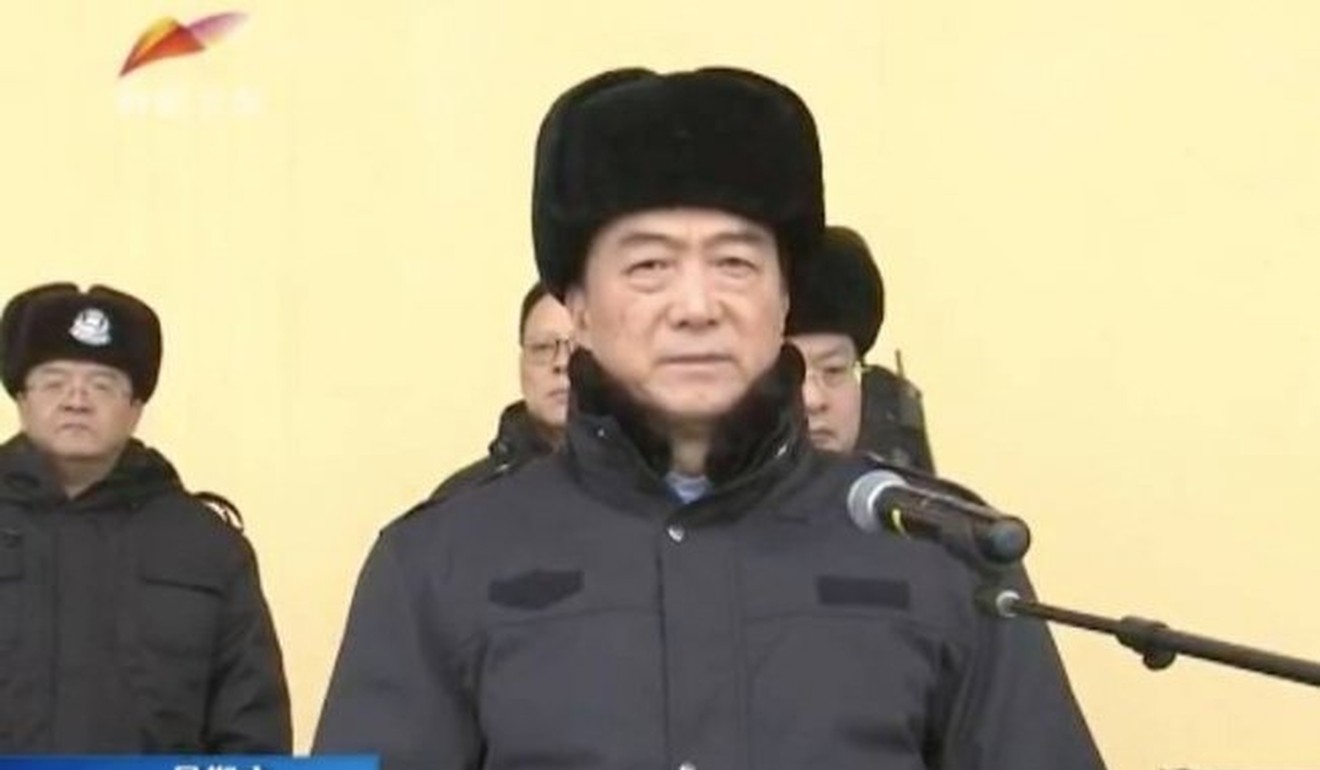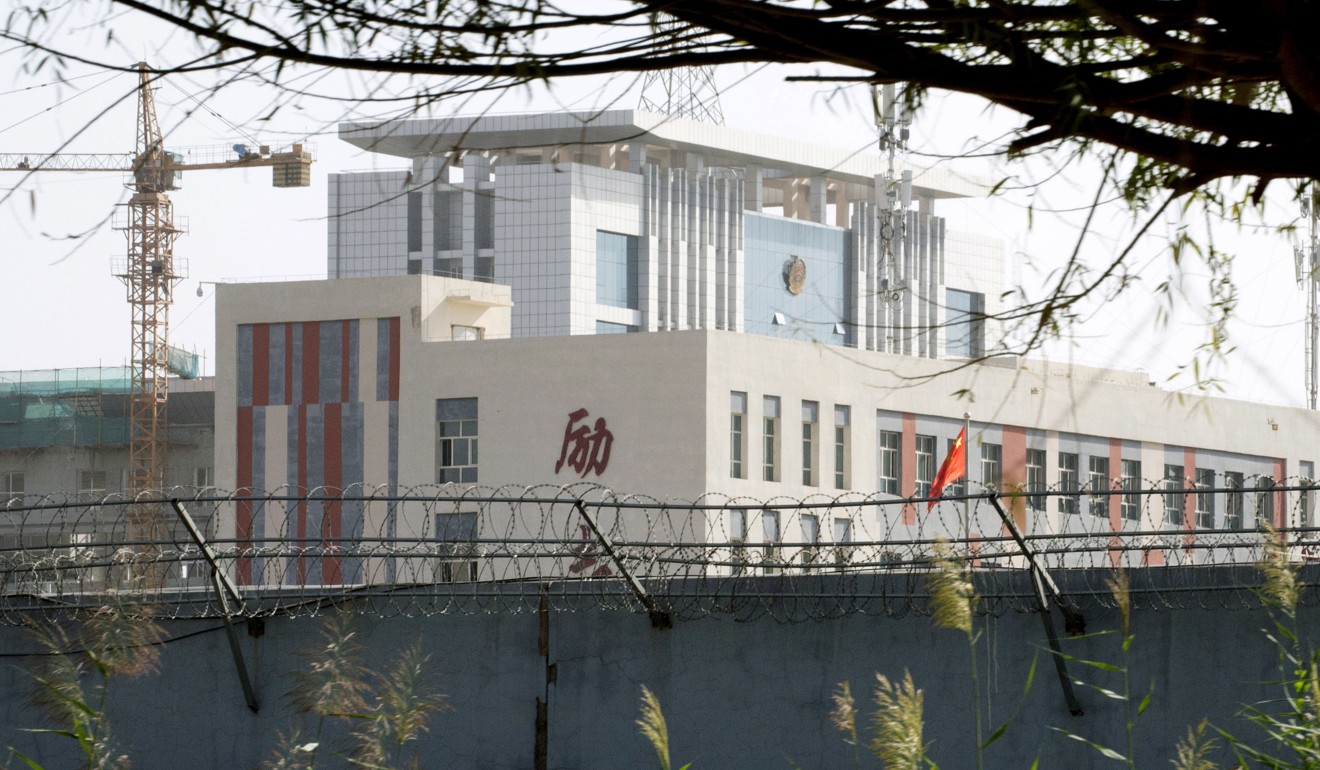
A global coalition of nearly 300 scholars on Monday called on Beijing to abolish its “transformation through education” campaign against China’s ethnic Uygur population, and appealed for increased diplomatic and legislative pressure on the Chinese government over the matter.
In a statement delivered on behalf of 278 academics from 26 countries, the group of self-titled “concerned scholars” said immediate action was needed “to prevent setting negative future precedents regarding the acceptability of any state’s complete repression of a segment of its population, especially on the basis of ethnicity or religion.”
Watch: Xinjiang explained
Up to 1 million ethnic Uygurs, Kazakhs and members of other largely Muslim ethnic groups are reported to be detained in extrajudicial internment camps in northwestern China’s Xinjiang Uygur autonomous region, a crackdown that began in early 2017.
After scrutiny by the United Nations and other international bodies, official statements from Chinese authorities have recently shifted from denial to justification, arguing that re-education is needed to combat the spread of extremist religious ideology and terrorism.
Speaking out: Uygurs in US break silence on China’s crackdown
The scholars’ call for action – which also included an appeal for countries engaged in China’s Belt and Road Initiative to make their involvement in the infrastructural development programme contingent on the abolition of mass internment camps — comes amid mounting evidence that Beijing is expanding its security crackdown in Xinjiang.
Speaking at a press conference convened at the National Press Club in Washington, Sean Roberts, director of George Washington University’s International Development Studies Program, said: “We felt it critical for the scholarly community to also take a stance on this issue.”
Members of the coalition came from a variety of fields, including China studies, Central Asian studies and Islamic studies, said Roberts, an associate professor of international affairs.

Referring to the Chinese president and to Chen Quanguo, the new Communist Party chief in Xinjiang, the scholars’ statement said: “We call on states and institutions to issue formal statements demanding that Xi Jinping and Chen Quanguo immediately abolish the ‘transformation through education’ detention system and release all Uyghur, Kazakh, Kyrgyz and other detainees.”
The petition also included demands on governments around the world to levy economic sanctions on Chinese officials and firms – both Chinese and foreign – that are engaged in the provision of technology being used in the execution of the government’s security policies.
Such action is already under consideration by the US Congress, after the introduction of bipartisan legislation this month.
The bill, the Uyghur Human Rights Policy Act of 2018, would commit the US government to pursuing economic sanctions against a number of Chinese officials, including Chen, who is widely considered to be the driving force behind the crackdown on the region’s Uygur, Kazakh and other largely Muslim ethnic groups.
China could face US punishment over Xinjiang Uygur camps under new bill
That legislation was welcomed by Mihrigul Tursun, a Uygur woman invited to speak at Monday’s press conference to share her experience of being held at a mass internment camp.
Speaking through a translator, Tursun, 29, recounted her ordeal of a three-month detention this year, during which she said she was beaten and tortured, forced to sing songs in Mandarin professing loyalty to the Chinese president and kept in a cell with more than 60 other women, nine of whom she said died during the time she was interned. She said she was released in April after being made to sign a statement vowing that she would “never do anything to harm China” and that the police never interrogated or tortured her.
“My people look to the United States as the beacon of hope for the oppressed people around the world,” said Tursun, who fled to Egypt after her release and arrived in the US in September. “I hope that the US will lead the world community to condemn China’s gross violations of universally recognised human rights”.
Beyond pressure from the international community, the group of scholars also called for heightened protection of Uygurs living outside of China who may be subject to surveillance or coercion by Chinese authorities.
“[We] urge relevant states and institutions where [Uygur] communities reside to make the protection of Uyghurs a matter of priority in their diplomatic relations with Beijing,” the statement said.
Beijing has previously bristled at any criticism of its policies in Xinjiang, frequently invoking its own non-interventionist approach to international relations as a shield from scrutiny.
How new Xinjiang party boss became front runner in race to be one of China’s most powerful men
But representatives of the scholars’ coalition expressed confidence that pressure from the academic community could act as a powerful force in attempts to elicit a shift in the Chinese government’s position.
“The kind of lobbying we’re doing, talking to Congress, talking to the media and getting this out into the larger discourse, I think it is making a difference”, said Darren Byler, a lecturer in the anthropology department at the University of Washington in Seattle.
“The number of people that have signed on to this statement is something that would have been unimaginable just one or two years ago”, said Byler, who cited academics’ involvement in pushing back against South Africa’s apartheid policies as an example of how the scholarly community could effectively exert public pressure on governments.
China changes law to recognise 're-education camps' in Xinjiang
Such pressure is crucial at a time when Beijing is seeking to deepen connections with trading and strategic partners around the world and elevate China’s standing in the global community, said Michael Clarke, an associate professor at the Australian National University’s College of Asia and the Pacific.
Beijing “wants respect from the rest of the world, for its position, for its weight in global affairs”, Clarke said. “The international community needs to demonstrate to Beijing that it will not actually get that while it’s doing this to a significant portion of its own citizens.”
Source: https://www.scmp.com/news/china/politics/article/2175120/global-coalitio...


